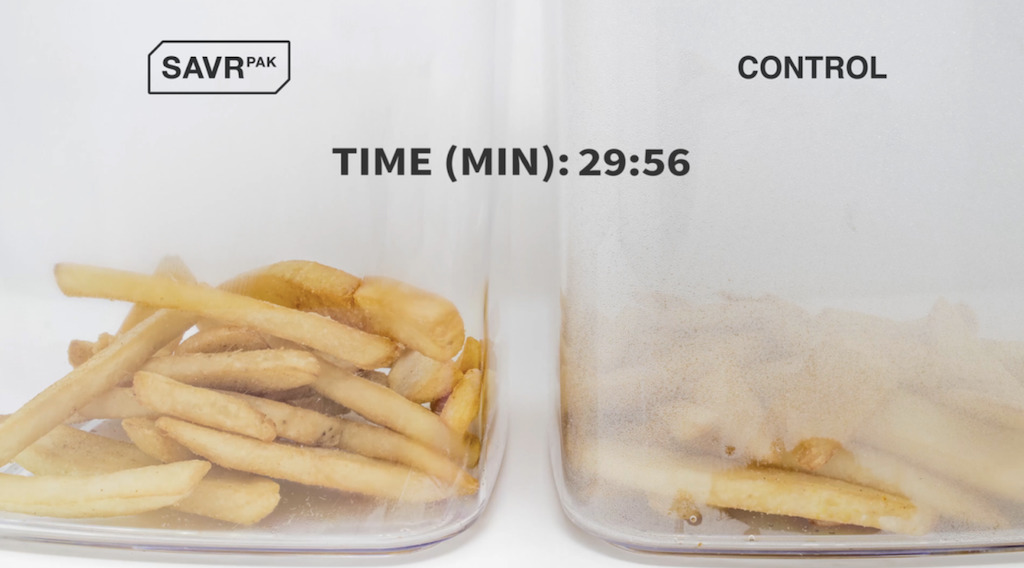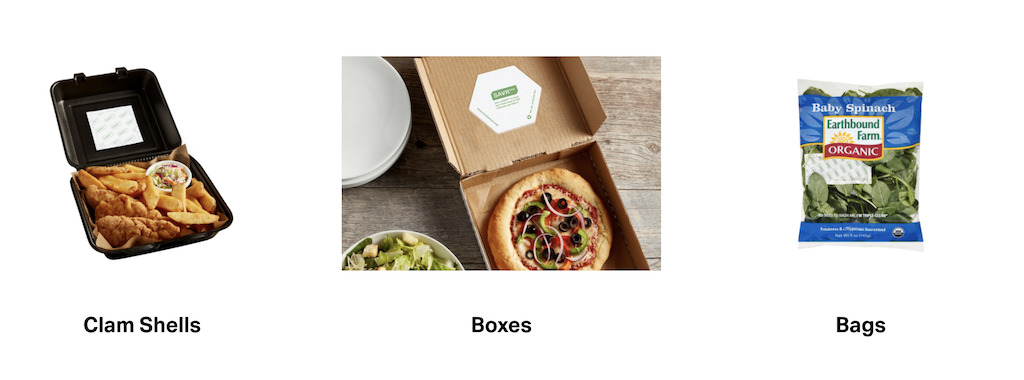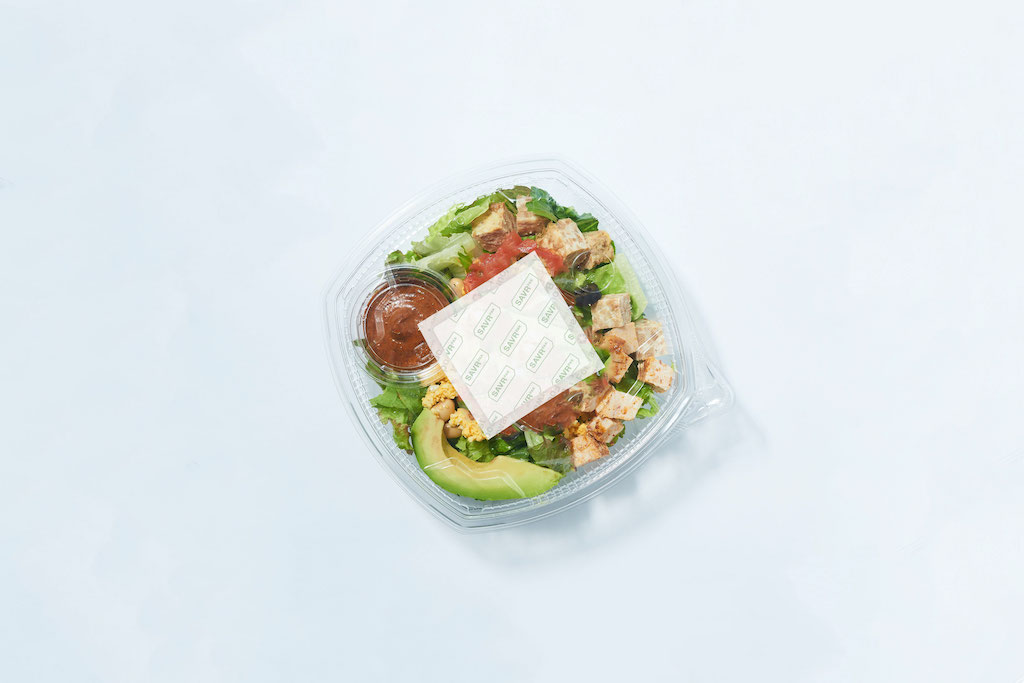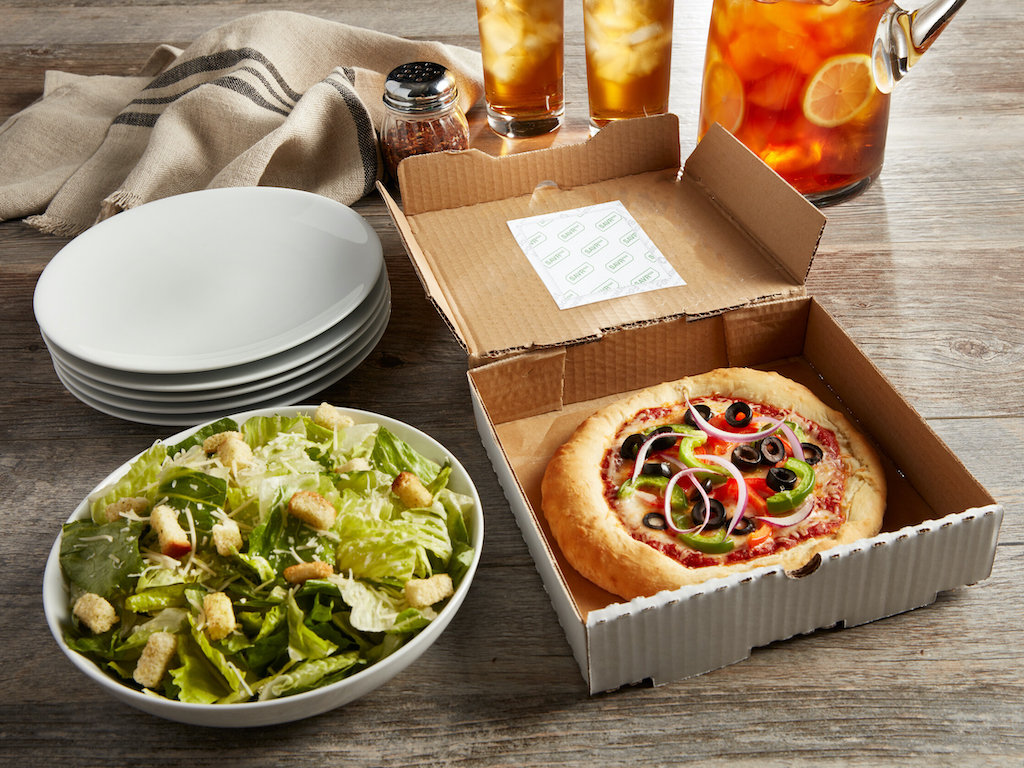5 Mins Read
California-based anti-food waste startup SAVRpak has closed US$3.5 million in its Series A financing led by celebrity investor Mark Cuban, after co-founder Greg Maselli’s took a shot with an email pitch. Formerly known as Soggy Food Sucks, SAVRpak’s solution helps absorb moisture in food containers to keep insides fresh and crisp, preventing spoilage and food waste.
SAVRpak reeled in investment from Shark Tank investor Mark Cuban, who led the US$3.5 million Series A funding round with his US$1 million investment after a cold email pitch. Co-founded by Greg Maselli, Bill Birgen and Grant Stafford, SAVRpak, who have rebranded from Soggy Food Sucks, uses thermodynamic technology to create a small envelope that traps condensation and moisture away from stored foods to prevent sogginess and food spoilage.
The funds will go towards helping the firm expand its production capacity to 50 million units per month and launch into new applications, including in grocery, agriculture and consumer markets.
“I’ve always admired his ideas and his approach to business, and I thought he’d appreciate my startup, SAVRpak, which helps keep takeout, packaged foods and produce fresher for longer,” wrote Maselli in an article detailing his cold email experience with Mark Cuban.
“So I found his address, dropped him a note, and forgot all about it, thinking there was little-to-no chance…And there it was. A reply from Mark Cuban. It was just a few words long, but I didn’t care; it was an invitation to an engagement, an engagement that, in my case, ended with Cuban becoming my investor.”

I’ve always admired his ideas and his approach to business, and I thought he’d appreciate my startup, SAVRpak, which helps keep takeout, packaged foods and produce fresher for longer.
Greg Maselli, Co-Founder, SAVRpak
The idea that ended up winning Cuban over was SAVRpak’s solution to food spoilage, taking aim at the 80 billion pounds of annual food waste that the U.S. alone generates. Globally, food waste accounts for 10% of the world’s greenhouse gas emissions – far more than the 2% attributable to the global aviation industry.
Read: 931 million tonnes of food sold is being wasted, new U.N. Food Waste Index reveals
Each SAVRpak is created using toxin-free and food-grade materials and works much like a peel-and-stick patch in things like pizza boxes and bags. The active element inside each patch is chilled water, which helps remove the moisture in the atmosphere and wicks condensation into the SAVRpak absorbent substrate made from plant cellulose.
According to the startup, each pouch reduces humidity inside the container by 45%, while only lowering the heat by 5% – still keeping your food deliveries warm when they arrive. It can also be used to extend the shelf life of stored foods by around 10 to 14 days.
Once SAVRpak has served its purpose, it can then be fully recycled, and the company is now in the process of obtaining biodegradable certification for their product.
Commenting on his decision to back the company, Cuban said in a statement: “SAVRpak makes food stay fresher, longer while retaining its great taste, all at a price that is affordable. It’s a unique combination that will change the presentation and delivery of food forever.”

Speaking to Green Queen Media, a spokesperson for SAVRpak added that the company is also looking to become certified compostable in U.S. municipal disposal with OWS Inc., a third-party lab used by the Biodegradable Products Institute (BPI), followed by backyard compostable certification in the U.S., U.K. and Australia.
The spokesperson for SAVRpak told Green Queen Media that its current product for foodservice channels are 100% bio-based, but noted that this does not cover the adhesive portion – though the “team is currently developing new products without adhesive that will be completely bio-based.”
“In takeout and delivery use cases, SAVRpak has consistently proven to reduce humidity in a container by up to 45% immediately, keeping food fresher and crisper far beyond any other solution on the market,” explained co-founder Stafford in a recent interview.
SAVRpak helps produce such as leafy greens, as well as prepared food, stay fresh longer, minimising humidity and microbes.
Grant Stafford, Co-Founder, SAVRpak
“At home, SAVRpak extends food’s life by up to 50%, whether it’s in a fridge or in a lunch container. In grocery stores, SAVRpak helps produce such as leafy greens, as well as prepared food, stay fresh longer, minimising humidity and microbes.”

Currently, the California-based startup is piloting its patented solution with a number of restaurants, food delivery apps and food distributing companies – all of whom are experiencing a boom in delivery demand since the pandemic, making SAVRpak’s anti-sog technology especially relevant to these businesses. According to data from market research firm NPD Group, restaurant delivery sales have surged 86% since Covid-19 began.
In January, the startup revealed that its next target will be retail channels, and is expecting to launch a consumer-facing product in the first half of 2022 to allow individuals to tackle food spoilage at home.
SAVRpak’s spokesperson told Green Queen Media that it is also now looking to expand its reach globally. “We have some international sales and are in discussions with major distributors to enter new markets,” said the company.
As awareness over the global food waste crisis grows, other startups coming up with solutions to the problem have also received funding. Most notably, Hazel Technologies secured an impressive US$70 million Series C in April, which will fuel the company’s plan to bring its shelf-life enhancing products to global markets.
All images courtesy of SAVRpak.




